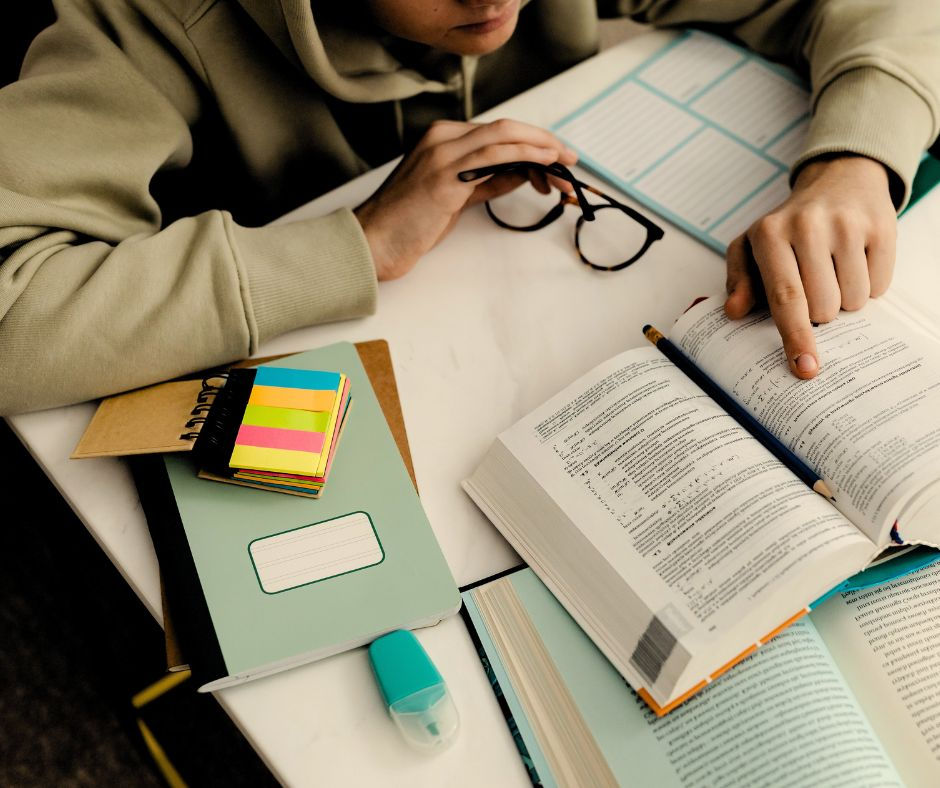Study Hacks
- Oscar Moreno
- Apr 29, 2024
- 3 min read

Feeling the struggle of staying focused while hitting the books? Trust me, I've been there. As someone who's easily distracted, studying can sometimes feel like an impossible task. But guess what? There's hope! By sharing some of the hacks I've learned along the way, we can work together to turn those study sessions from chaotic to concentrated.
1. Plan it out!
Crafting a study plan isn't just about writing down tasks; it's like drawing a map to your goals. Your plan becomes your trusted guide, steering you through distractions. It's your roadmap to success and becomes more realistic when you achieve every task. With it, you're armed, focused, and ready to conquer each study session.
2. Don’t Cram
Do it now, not later. I don’t believe that cramming will allow you to finish a lot of tasks and enable your brain to function well. For me, it’s a negative attitude. Instead of cramming, studies have shown that studying with the goal of long-term retention is best for learning overall.
3. Discover your learning approach
Discovering your ideal study methods may take some time and experimentation. Schwab suggests exploring various techniques through metacognition, which involves reflecting on your thought processes to find what works best for you.
Here are Schwab's steps:
1. Recap prior knowledge before diving into new material.
2. Take notes on new concepts and connections.
3. Summarize what you've learned and seek clarification on any remaining questions.
4. Look for your study place
It's widely recognized that the place where you study greatly impacts how well you learn. Being in a supportive learning setting boosts motivation, engagement, and overall learning skills. Conversely, students in negative environments—noisy, uncomfortable, or distracting—struggle to focus and absorb information. It can be
Your room
Library
Quiet cafe
Park
Study room in your residence hall
Empty classroom
Outdoor seating area
Quiet corner of a bookstore
Cozy corner in a coffee shop
Etc.
5. Read and read
To really remember what you read, it's helpful to read it several times and write about it. But revisiting the material is also key to reinforcing memory. However, the aim isn't to mindlessly repeat the process.
6. Turn off or set aside your gadgets
Research indicates that keeping phones out during study sessions can decrease students' focus by 20%, hindering their learning. Even if you've silenced social notifications, the phone remains a potential distraction that may disrupt your study flow. Switch it off before diving into your weekly readings, and switch it back on after you've completed your session.
7. Take Breaks
Breaks are crucial. Research from the National Institutes of Health reveals that they enhance memory retention. Wakeful rest is equally vital for learning new skills, as it helps our brains consolidate memories. Ensure you allocate adequate time for relaxation and sleep between study sessions to keep your brain refreshed and receptive to new information.
8. Study buddy Support System
Your peers are facing similar challenges as you. Consider connecting with classmates to form a study group where you can review material together, share ideas, and offer support during difficult times.
Studying with others allows for mutual explanation of concepts, quizzing each other, and establishing a supportive network that extends beyond the class.
9. Reward Yourself
Studying can drain you mentally and emotionally, making it tough to stay energized.
Giving yourself rewards along the way can boost enjoyment and interest in the task. Research highlighted in a Science Daily article suggests that small rewards during the process maintain motivation better than saving them all for the end.
After a tough study session, treat yourself to ice cream or an episode of your favorite Kdrama to recharge.
10. Set Goals
Establishing specific goals throughout your study journey helps track your progress effectively. Psychology Today suggests applying the SMART method:
Specific: Define precise goals with actionable plans, like committing to studying daily between 2 and 4 p.m. at the library.
Measurable: Aim for a set number of study hours or a specific increase in exam scores to have measurable targets.
Realistic: Ensure your goals are achievable to avoid discouragement. For instance, if you currently study two hours per week, aim to increase to three or four hours rather than ten.
Time-specific: Align your goals with your academic schedule and other commitments.
Incorporating these study tips maximizes your learning from class materials and sets a path for success in your academic journey and beyond.
Source: https://summer.harvard.edu/








コメント